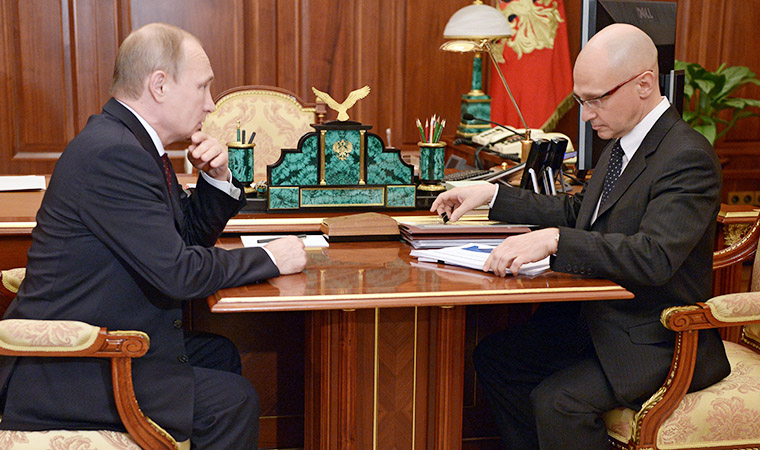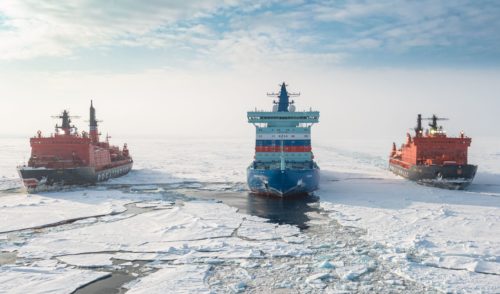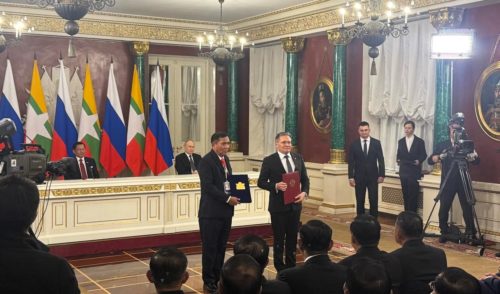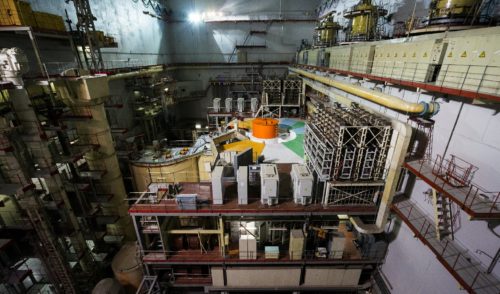
Growth on all sides
back to contentsThe discussion started with last year results. Sergei Kirienko reported that all targets were achieved. In 2014, Russian nuclear power plants produced an all-time record high of 182 billion kWh of electric power, or 14 billion kWh above the target. Growth was recorded on all sides as labor productivity grew by 11.7%, followed by a 9.5% salary increase. “We keep labor productivity growing faster than salaries,” stressed Mr. Kirienko.
Rosatom also keeps an eye on increasing power generation without sacrificing reliability and sustainability of power plant operations. There have been no material malfunction at nuclear stations, and their failure rates have been twice as low as in Europe and the USA for a number of years, Vladimir Putin remarked.
Sergei Kirienko reminded that the last year was marked by the startup of BN-800 fast reactor at Beloyarsk NPP and the first power generated at Rostov NPP Unit Three. Initially, the power startup of Unit Three had been scheduled for the first quarter of 2015. Having launched it in December, constructors saved almost RUB 2bn in costs.
Global leader
The discussion then moved to international activities. With USD 98bn as initial target for 2014, Rosatom’s overseas portfolio increased by USD 34bn to hit USD 101.4bn despite international pressure. New contracts create a steady flow of orders for industry companies and related suppliers.
Another issue mentioned at the meeting was construction of two power units in Hungary and nuclear fuel supplies for Paks NPP. “We offer favorable terms coupled with the latest technologies,” stressed the President, and added that if Russia had been made to give up on the deal it would have hurt Hungarian national interests in the first place.
“To remain competitive, to make attractive offers regardless of political pressure, we have to keep our costs low,” says Sergei Kirienko. Rosatom has set a task of cost reduction by 10% each year. “We are on track here in terms of fuel fabrication, uranium mining, power generation and waste management costs,” Mr. Kirienko recites.
No monopolies
Russian companies produce 97% of core equipment for the national nuclear industry, which is yet another achievement of Rosatom. The procurement process is not monopolized anymore as several suppliers take part in each tender. The single industry procurement system has made its contribution, too. “All our contracts are now concluded through an open bidding process. We have established a totally transparent system which saved us RUB 34bn last year alone and about RUB 250bn since its introduction,” Sergei Kirienko cited the facts.
The discussion turned to staff training. Rosatom CEO thanked the President for a decision to establish the National Research Nuclear University, “It is very important that the University has branches in every city of Rosatom’s presence. It gives students an opportunity to study closer to their homes.”
Major effort
Nuclear legacy management was the last issue covered at the meeting. Sergei Kirienko spoke about the completion of old nuclear submarine de-fueling in the Far East, one of the most important projects carried out in 2014. “For many years it was our major effort. The project significantly reduced environmental hazards in the region, which is very good. Thank you,” President Putin finished the meeting.




